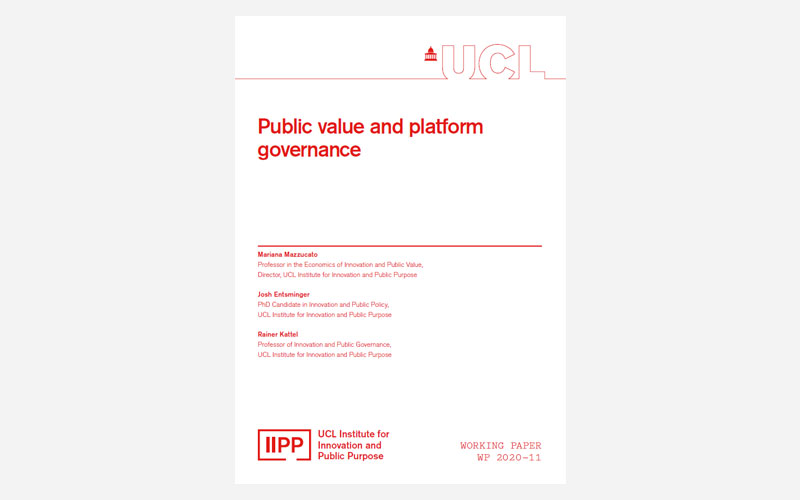Public value and platform governance
This paper investigates how current anti-trust models may insufficiently address the value-extracting features of existing data-intensive and platform-oriented industry behaviour and business models.

29 September 2020
UCL Institute for Innovation and Public Purpose (IIPP) Working Paper Series: IIPP WP 2020-11
Authors
- Mariana Mazzucato | Director, Professor in the Economics of Innovation and Public Value, UCL Institute for Innovation and Public Purpose
- Josh Entsminger | PhD Candidate in Innovation and Public Policy, UCL Institute for Innovation and Public Purpose
- Rainer Kattel | Deputy Director, Professor of Innovation and Public Governance, UCL Institute for Innovation and Public Purpose
Reference
Mazzucato, M., Entsminger, J. and Kattel, R. (2020). Public value and platform governance. UCL Institute for Innovation and Public Purpose, Working Paper Series (IIPP WP 2020-11). Available at: https://www.ucl.ac.uk/bartlett/public-purpose/wp2020-11
Abstract
The market size and strength of the major digital platform companies has invited international concern about how such firms should best be regulated to serve the interests of wider society, with a particular emphasis on the need for new anti-trust legislation. Using a normative innovation systems approach, this paper investigates how current anti-trust models may insufficiently address the value-extracting features of existing data-intensive and platform-oriented industry behaviour and business models. To do so, we employ the concept of economic rents to investigate how digital platforms create and extract value. Two forms of rent are elaborated: ‘network monopoly rents’ and ‘algorithmic rents’. By identifying such rents more precisely, policymakers and researchers
can better direct regulatory investigations, as well as broader industrial and innovation policy approaches, to shape the features of platform-driven digital markets.
 Close
Close

